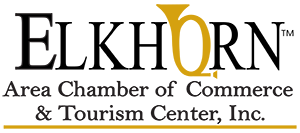Strengthen Business Practices with Targeted Audit Strategies
Navigating the complexities of modern business demands a balance between staying compliant and streamlining audit processes for growth. Utilizing advanced technologies alongside strategic techniques enhances efficiency and ensures adherence to regulations. Innovative methods can reshape how audits are conducted, reducing inefficiencies and improving accuracy. Organizations that adapt these approaches are better equipped to handle changing compliance landscapes. Staying proactive in refining these processes fosters both agility and operational resilience.
Streamlining Financial Management with Document Systems
Implementing a document management system is a game-changer for handling your business’s financial records. By converting PDFs to Excel, you can easily manipulate and analyze tabular data, providing a more versatile and editable format. This deserves a look as it saves time and reduces errors associated with manual data entry. Once you’ve made the necessary adjustments in Excel, you can resave the file as a PDF, ensuring your documents remain secure and easily shareable. Embracing such systems can enhance compliance efforts and streamline audit processes, leading to more effective management.
Enhancing Audit Precision with Machine Learning
Incorporating machine learning algorithms into your audit procedures can dramatically boost accuracy and efficiency. These algorithms automate repetitive tasks, allowing auditors to focus on more complex issues. Unlike traditional methods that rely on sampling, machine learning enables the analysis of entire datasets, uncovering patterns and anomalies that might otherwise go unnoticed. This comprehensive approach not only improves fraud detection but also strengthens risk management strategies, ensuring compliance with regulatory standards.
Harnessing Centralized Dashboards for Effective Compliance
Creating a centralized audit dashboard is essential for comprehensive oversight and swiftly identifying compliance issues within your organization. By integrating data from multiple sources, this digital interface offers a unified view of compliance activities, deadlines, and metrics. Key performance indicators, such as the number of compliance incidents and resolution times, provide valuable insights into your compliance posture. Features like real-time data integration and color-coded alerts ensure potential issues are addressed before they escalate, enhancing transparency and accountability.
Boost Compliance with Built-In Audit Trails
Choosing compliance software with integrated audit trails streamlines record-keeping and supports regulatory assessments. These trails provide a detailed log of compliance actions, tracking changes, activity timelines, and document access. Such functionality strengthens transparency and reinforces accountability in operational practices. It also offers clear evidence of alignment with industry standards, easing the burden of regulatory reviews. Implementing this tool enhances efficiency and credibility.
Maximize Compliance Efficiency with Versatile Software Solutions
Choosing compliance software that supports a variety of compliance frameworks is crucial for businesses facing diverse regulatory demands. This approach simplifies the process of adhering to multiple standards and ensures your organization remains agile in the face of evolving regulations. By integrating software that accommodates frameworks like HIPAA, SOX, and GDPR, you can streamline your compliance efforts and reduce the risk of financial and legal penalties.
Centralized Audit Repositories: Boosting Efficiency and Compliance
Creating a centralized repository for audit records significantly enhances both accessibility and organization, making audit preparation less burdensome. By categorizing documents in a single, searchable location, you can quickly locate necessary information, reducing the stress and time traditionally associated with audits. This approach minimizes the risk of non-compliance, ensuring all documents are up-to-date and accurately reflect regulatory requirements.
Enhancing Compliance Through Integrated Audit Systems
Integrating audit processes with other business systems can significantly enhance your organization’s compliance strategy. By aligning ERP systems with audit functions, you ensure that data integrity, security controls, and process adherence are consistently monitored and maintained. This holistic approach streamlines workflows and reduces manual errors, increasing efficiency and reliability.
Embracing these strategies transforms audit processes and strengthens compliance efforts, enabling success in challenging regulatory settings. Leveraging innovative solutions fosters efficiency while maintaining strict adherence to requirements. These approaches enhance operational precision and build a foundation for sustained growth. They also position your business to excel and remain competitive in evolving markets.
Discover the charm of Elkhorn, Wisconsin, with the Elkhorn Area Chamber of Commerce & Tourism Center and plan your next adventure in this vibrant community!
